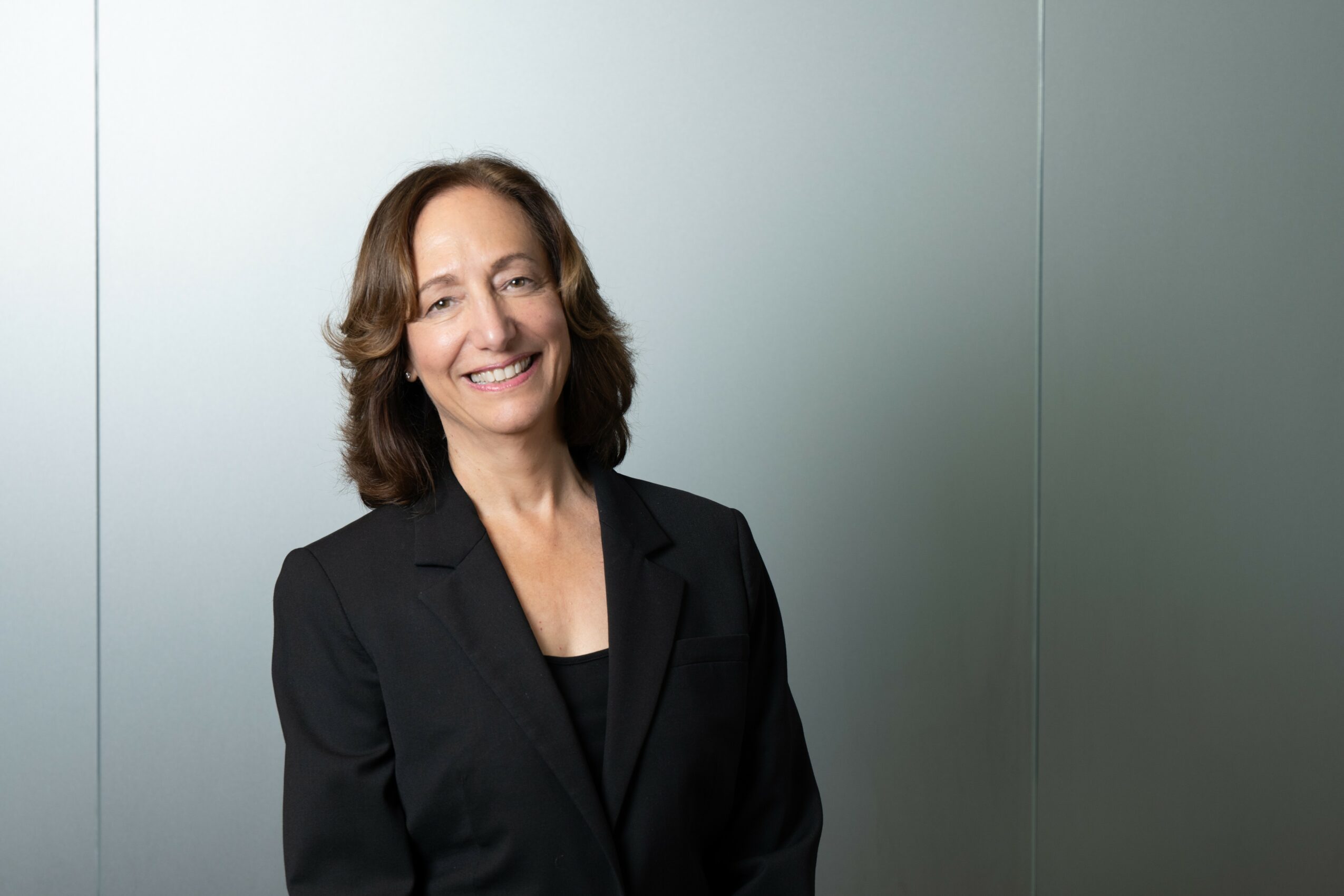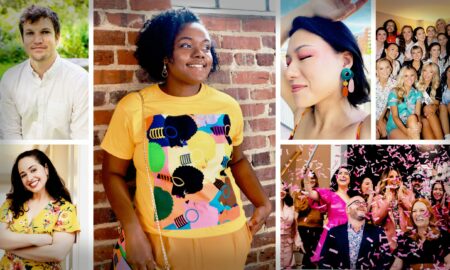

Today we’d like to introduce you to Yasmine White.
Hi Yasmine, so excited to have you on the platform. So before we get into questions about your work-life, maybe you can bring our readers up to speed on your story and how you got to where you are today?
I’m the CEO of Voices Together, an evidence-based music therapy program that serves teens and adults across the state. We have dozens of board-certified music therapists using our proprietary Voices Music Therapy™ (VMT) model in classrooms and community settings. Our work is rooted in the belief that music can unlock connection, healing, and voice—and I’ve seen that power firsthand.
My journey began when I was eight years old, sitting beside my grandmother as we sang old New York songs together. Through those songs, she shared stories from her youth, and I felt deeply connected to her world. That experience planted the seed for my lifelong passion for music as a bridge to understanding and expression.
As a practicing music therapist, my first client was an older woman who had lost her ability to speak after a stroke. When we sang a familiar song together, she stood up and sang the entire piece from beginning to end. Moments like that—when a child says their first word through music, or someone finds the courage to express how they feel—continue to reignite my passion for this work.
When I moved to North Carolina, I had already spent years specializing in autism. I saw a need for group experiences where participants could practice skills, build relationships, and grow together. So I developed a new music therapy group model that incorporated speech and language development, social-emotional learning, and a curriculum designed for generalization. The idea was to mimic natural conversation through music, making speaking and listening easier and more intuitive.
One of the most important elements we built into our model from the beginning—17 years ago—was the Nondirective approach. We assume competency at every level, meet our clients where they are, and help guide them to where they want to be. Our therapists act as partners, asking, listening, and offering tools for growth. It’s a powerful moment when a child says, “I feel sad,” or “I feel excited” for the first time—reaching outside themselves and beginning the journey of self-advocacy.
Voices Music Therapy™ caught on quickly. We built partnerships with school districts and communities, and in 2014, Duke University studied our model for three years. Their research resulted in positive data and two peer-reviewed journal articles, helping us gain recognition as an evidence-based best practice.
Following that success, we received a contract from the state—funded by a federal mandate—to support individuals with disabilities ages 14–21 in transitioning to work and community life. Our curriculum-based model was a perfect fit, and demand quickly took us statewide. We’ve since become a Medicaid provider, allowing us to serve children, teens, and adults of all ages, including those facing mental health and substance use challenges.
As we continue to receive interest from outside our state, I’m often reminded of that moment with my grandmother—how music helped me see her world. That memory continues to inspire me as we expand our reach and help others find their voice.
Would you say it’s been a smooth road, and if not what are some of the biggest challenges you’ve faced along the way?
I’ve had a clear and consistent vision from the very beginning. But that doesn’t mean the journey was easy. We’ve been called pioneers and innovators—which is an honor—but those titles come with steep hills, countless hurdles and relentless persistence. There were many moments when I truly believed we might fold. Running a nonprofit dependent on grants is a challenging road, and there were times I kept pushing forward even when it felt like there was nowhere left to push.
For over fifteen years, I sat down for countless coffees, sharing the critical need for our program and inviting stakeholders to witness it in action. That grassroots effort was essential—it built the foundation for everything we’ve become.
Our supporters, advisors, and board members have been the pillars of our success. They are our support beams, and I couldn’t have built this organization without their belief and guidance.
Equally vital are the music therapists we’ve hired and trained. They are the magic in the field—the professionals who bring our model to life, who connect with clients in transformative ways, and who embody the heart of our mission. Their dedication has been the reason we’ve weathered all the ups and downs.
Today, we’re a mid-sized organization with approximately sixty staff members—each one deeply committed to our services. They are the fuel that keeps us moving forward, and I’m endlessly proud of what we’ve built together.
Alright, so let’s switch gears a bit and talk business. What should we know about your work?
Without a doubt, whether through production, songwriting, private practice, or my work with Voices Together, my life’s work has been rooted in harnessing the profound and tangible power of music to unlock the best parts of what it means to be human.
I like to say that I specialize in supporting and believing in each person’s access to their own personal power. Everyone deserves to live with purpose, enjoy emotional and social well-being, and be seen as whole—no matter how uniquely they experience the world.
My core expertise lies in developing and scaling VMT, a proprietary, evidence-based clinical model that I’m best known for. This highly structured, measurable, and scalable therapeutic intervention translates music’s inherent and motivating communication structure into functional skills.
What sets me—and by extension, Voices Together—apart is our unwavering commitment to measurable impact, rigorous research, and real-world outcomes. Our research shows that students in our program often progress from single-word speech to phrase speech in just 15 weeks, with significant gains in communication and social engagement.
We’ve seen many participants gain confidence and learn the skills to take the first steps towards independence and the jobs that they chose.
What I’m most proud of is the individual transformation we help facilitate. Witnessing participants transform from speaking a few words to confidently engaging with peers—that’s the fuel behind everything we do. We’ve empowered thousands of individuals to forge their own path in life, and that, to me, is the true definition of success.
If you had to, what characteristic of yours would you give the most credit to?
To create meaningful change, you must have the vision to see a better way forward—to look at a challenge others accept as permanent and say, “We can develop a research-backed solution that works.” That vision led to the development of the proprietary VMT Model.
But vision alone isn’t enough, especially in the nonprofit and clinical sectors. It must be paired with an unwavering commitment to measurement and proof. We believed in the power of our model, but to truly scale and reach millions, we needed data. So, we invested deeply in clinical research to validate our effectiveness—transforming Voices Together from a passion project into a recognized clinical best practice in education and community programming.
This dual focus—innovating a solution and rigorously proving its impact—is what has earned us the trust of families, clinicians, and school systems across North Carolina.
Contact Info:
- Website: https://voicestogether.org/
- Instagram: https://www.instagram.com/voicestogethermusictherapy/?hl=en
- Facebook: https://www.facebook.com/voicestogethermusictherapy/
- LinkedIn: https://www.linkedin.com/in/yasmine-white-3229796/
- Youtube: https://www.youtube.com/@voicestogether1020














